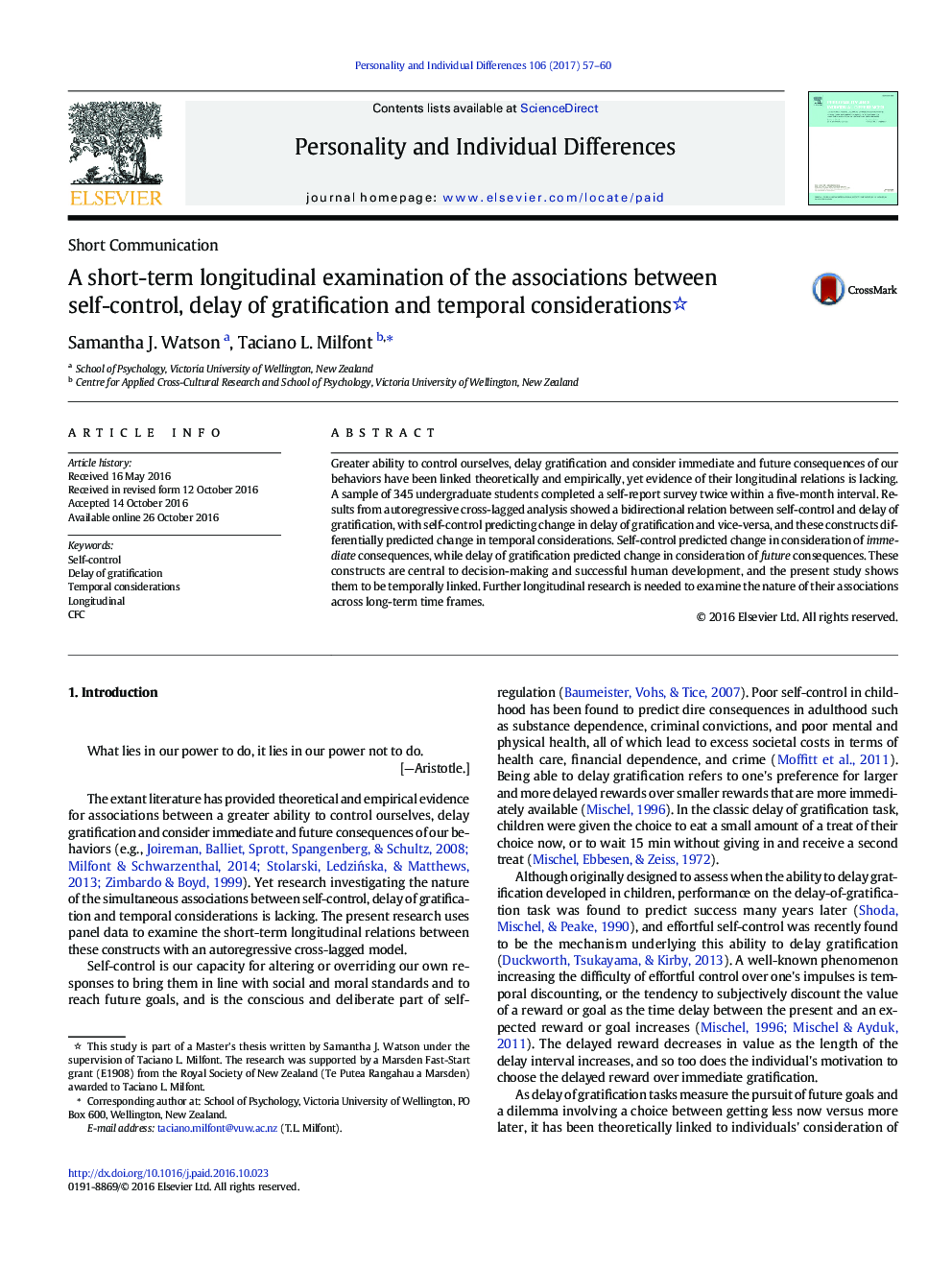| Article ID | Journal | Published Year | Pages | File Type |
|---|---|---|---|---|
| 5036225 | Personality and Individual Differences | 2017 | 4 Pages |
â¢Self-control, delay of gratification and temporal concern are empirically related.â¢Their longitudinal relations were examined in a short-term panel data.â¢Self-control and delay of gratification predict change in each other across time.â¢Self-control predict change in consideration of immediate consequences.â¢Delay of gratification predict change in consideration of future consequences.
Greater ability to control ourselves, delay gratification and consider immediate and future consequences of our behaviors have been linked theoretically and empirically, yet evidence of their longitudinal relations is lacking. A sample of 345 undergraduate students completed a self-report survey twice within a five-month interval. Results from autoregressive cross-lagged analysis showed a bidirectional relation between self-control and delay of gratification, with self-control predicting change in delay of gratification and vice-versa, and these constructs differentially predicted change in temporal considerations. Self-control predicted change in consideration of immediate consequences, while delay of gratification predicted change in consideration of future consequences. These constructs are central to decision-making and successful human development, and the present study shows them to be temporally linked. Further longitudinal research is needed to examine the nature of their associations across long-term time frames.
